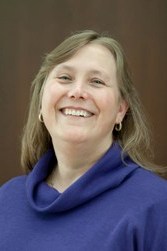
Petra Duncan
Many people face challenges communicating the work they do to others in the form of publications and presentations. One year ago, the Health Sciences Education and Research Commons (HSERC) at the University of Alberta initiated the Dead Papers Society (DPS), a group focused on sharing research knowledge and improving personal writing skills.
Although DPS members have varying backgrounds and experiences with writing and research, they work on planning collaborative manuscripts for publications and abstracts for conferences, and learn about various research-related topics including ethics, referencing, authorship and literature reviews.
For the past year, eight steadfast members have met every two weeks and although there is always an agenda, the content of each meeting is driven by the needs of the members and their projects. DPS keeps an open invitation for others to join at any time, especially if you need an audience for an upcoming presentation or want to discuss the final copy of an abstract before taking the plunge.
DPS members help one another with editing, reviewing and thinking about publications. The group's agenda begins with a review of action items and leads right into a spotlight on a topic of interest, such as why people write. The team then discusses a feature project, which is one of the topics that a DPS member has chosen to work on, followed by round table reporting on the other projects chosen by the group.
The team also keeps a file that has links to articles and documents of interest. In the past, DPS has arranged field trips and speakers. Members have gone to the Health Sciences Library for an introduction to RefWorks and have listened to a guest speaker from the University talk about general ethics and guidelines.
Each person in DPS has recognized improvements. As a member, I can immediately identify four areas of personal achievement:
Today all DPS members have a new project started. Although each member is at a different stage in their project, DPS offers a unique opportunity to share plans, thoughts, and ideas in a comfortable and encouraging atmosphere. If you have two or more colleagues who are passionate about moving forward professionally in a very tangible way, forming a DPS group could be a wonderful way to keep the motivation alive.
About the Health Sciences Education and Research Commons (HSERC)
Providing care to increasingly complex patients within an evolving health system requires a new approach to health science education. HSERC is committed to equipping the next generation of health workforce with the skills to provide such care. HSERC is a shared resource among eight faculties with two essential parts. First, HSERC is the home of the interprofessional curriculum with a focus on supporting the development and evaluation of team-based learning experiences for all health science faculties. Second, HSERC has a suite of simulation learning environments and simulation services (e.g. Standardized Patient Program) to support curriculum development/delivery and education research.
Although DPS members have varying backgrounds and experiences with writing and research, they work on planning collaborative manuscripts for publications and abstracts for conferences, and learn about various research-related topics including ethics, referencing, authorship and literature reviews.
For the past year, eight steadfast members have met every two weeks and although there is always an agenda, the content of each meeting is driven by the needs of the members and their projects. DPS keeps an open invitation for others to join at any time, especially if you need an audience for an upcoming presentation or want to discuss the final copy of an abstract before taking the plunge.
DPS members help one another with editing, reviewing and thinking about publications. The group's agenda begins with a review of action items and leads right into a spotlight on a topic of interest, such as why people write. The team then discusses a feature project, which is one of the topics that a DPS member has chosen to work on, followed by round table reporting on the other projects chosen by the group.
The team also keeps a file that has links to articles and documents of interest. In the past, DPS has arranged field trips and speakers. Members have gone to the Health Sciences Library for an introduction to RefWorks and have listened to a guest speaker from the University talk about general ethics and guidelines.
Each person in DPS has recognized improvements. As a member, I can immediately identify four areas of personal achievement:
- Abstract writing (I got accepted at three different conferences this past year).
- The start of my journey to get published.
- How to read, store and use documents and papers as references.
- How to edit and review literature works.
Today all DPS members have a new project started. Although each member is at a different stage in their project, DPS offers a unique opportunity to share plans, thoughts, and ideas in a comfortable and encouraging atmosphere. If you have two or more colleagues who are passionate about moving forward professionally in a very tangible way, forming a DPS group could be a wonderful way to keep the motivation alive.
About the Health Sciences Education and Research Commons (HSERC)
Providing care to increasingly complex patients within an evolving health system requires a new approach to health science education. HSERC is committed to equipping the next generation of health workforce with the skills to provide such care. HSERC is a shared resource among eight faculties with two essential parts. First, HSERC is the home of the interprofessional curriculum with a focus on supporting the development and evaluation of team-based learning experiences for all health science faculties. Second, HSERC has a suite of simulation learning environments and simulation services (e.g. Standardized Patient Program) to support curriculum development/delivery and education research.